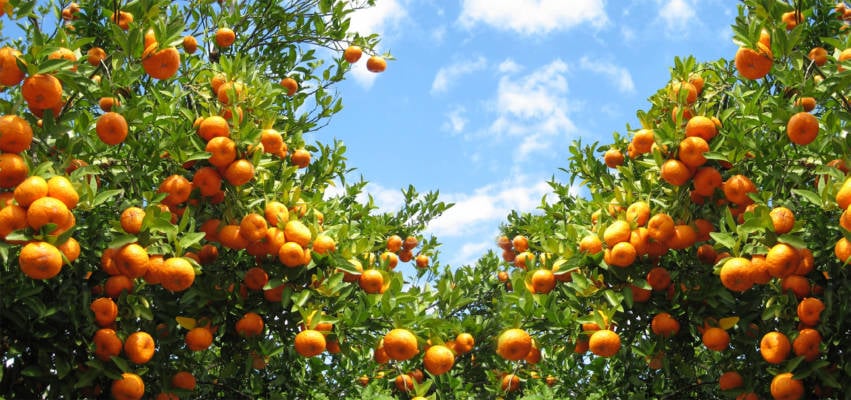
Innovating in Crisis: How Israeli Agrifood Tech Startups Are Bolstering Global Food Security

Technologies like precision agriculture, alternative proteins, and sustainable farming practices are at the forefront of these efforts.
By Sveta Listratov, TPS
Despite eight months of war, Israel’s agrifood tech sector is thriving with a community of 400 companies and private funding surging to nearly $100 million in the first quarter of 2024.
“The war has certainly posed challenges, particularly in terms of on-site testing and international investments,” Alon Turkaspa, the AgriFood Tech and Climate Tech Sector Lead at Startup Nation Central, told The Press Service of Israel.
Startup Nation Central is a Tel Aviv-based non-profit that promotes Israeli startups and innovation.
“However, the community’s response has been incredibly supportive. Companies from the north of Israel have relocated to the center, working together to ensure business continuity,” Turkaspa said.
Despite the challenges, the war has underscored the importance of food security, driving Israeli agrifood tech companies to develop innovative solutions contributing to long-term food resilience.
Technologies like precision agriculture, alternative proteins, and sustainable farming practices are at the forefront of these efforts.
“There are a couple of important trends that are so strong they will keep this agri-food sector in Israel very robust. We are disruptive in a good way and revolutionizing many areas, particularly food security and improved nutrition,” Turkaspa said.
“Our technologies can help enhance food security worldwide, especially in regions facing similar challenges. This is what the world is looking for, and we are perfectly positioned to deliver.”
“The war just showed us that we need to take care of ourselves. So, if we can grow more from the land and also make it more functional from a health perspective, a nutritional perspective, it’s very significant. So, from that perspective, there’s increased interest in these types of technologies, ways to increase yield from our land, and ways to make the yield more functional, more optimized, and more nutritious. It’s important for the whole world, of course, but from an Israeli perspective, it’s important to get it covered for ourselves.”
Israel’s agrifood tech sector is home to several innovative startups making significant strides.
Remilk, based in Ness Ziona, specializes in producing dairy products without cholesterol, lactose, hormones, and antibiotics, using significantly fewer resources. Their products taste identical to conventional dairy, providing a sustainable alternative in the dairy industry.
Else Nutrition, based in Tel Aviv, offers the world’s first whole-plant, dairy-and-soy-free infant formula line. Made from 100% plant-based ingredients such as almond and buckwheat, the formula boasts a 65% lower carbon footprint compared to standard dairy-based infant formulas.
Other notable startups include Groundwork BioAg. Based in Moshav Mazor, near Petah Tikvah, Groundwork BioAg produces “mycorrhizal inoculants” — fungi that enhance plant growth by extending a plant’s root system and improving its ability to absorb water and nutrients.
“Investors typically involved in agri and food tech bring ‘smart money,’ meaning they understand the long-term challenges and opportunities. They understand a 10-plus-year time frame. These investments are here for the long run,” Turkaspa explained, “The war is a significant challenge, but the strong underlying trends keep the sector optimistic.”
According to Turkaspa, the sector’s resilience is a reflection of the entrepreneurs themselves.
“It’s amazing to continue talking to CEOs who, despite being evacuated from their homes and communities, or being called up on reserve duty, maintain business operations. Half of the entrepreneurs are talking from a hotel room because they’ve been evacuated from the north, or they’re talking from away. And they took off the uniforms and stayed with a white T-shirt just to have their Zoom with the investors. I was on many calls like this, and I became used to it but it’s unbelievably special,” Turkaspa told TPS-IL.
“Operationally, it’s still a challenge. If a factory is closed, you can’t make it up so fast. If a testing area has been closed, you can’t just move an experiment on the ground so fast. It’s complicated in that sense. But as a whole, there was a lot of business continuity, and we will keep on seeing this kind of mindset,” he said, adding, “I’m optimistic that the interest will remain, the investments will come in. As I mentioned, these investments are smart investments. They are here for the long run. A war will not deter them.”
MAKE THE LAND OF ISRAEL EVEN MORE BEAUTIFUL!
PLANT YOUR VERY OWN FRUIT TREES IN ISRAEL!
Farmers near the Gaza border lost family, friends and workers. Spring is here, and they desperately need help to replant the farms. Join us in blessing the People and Land of Israel.
“I will ordain My blessing for you…”
(Leviticus 25:4)
The post Innovating in Crisis: How Israeli Agrifood Tech Startups Are Bolstering Global Food Security first appeared on United with Israel.
United with Israel
